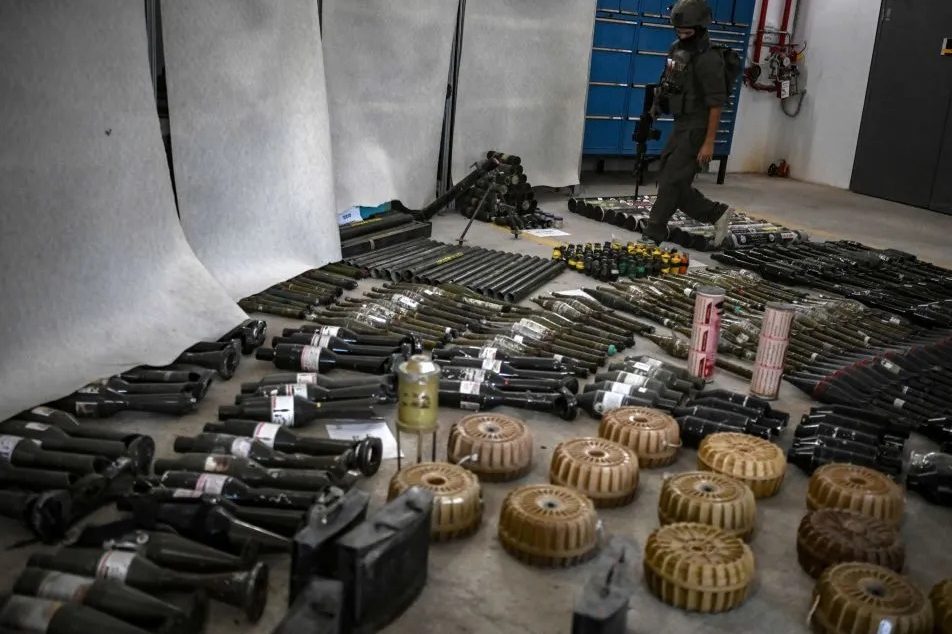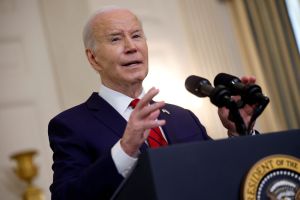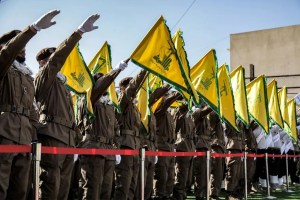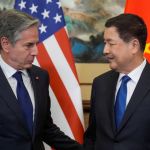First, it was Russia’s war with Ukraine. Then, it was Hamas’s terrorist attacks against Israel. Both of these events, in gross violation of international law, have certainly not escaped the watchful eyes of that infamous state sponsor of terrorism, North Korea. Earlier this week, a Hamas official said North Korea is “part of [Hamas’s] alliance,” and he intimidated Israel and the United States with the words that: “the day may come when North Korea intervenes” by unleashing a direct strike against the United States.
Recent events have clearly demonstrated that Hamas does not just want to destroy the lives of Israeli civilians, but the very existence of the Israeli state. Similarly, Israel is a state that North Korea does not recognize. Following Hamas’s initial attacks, the North Korean Foreign Ministry predictably sided with Palestine, and then began the blame-game against the United States and the West. Pyongyang accused Washington and its allies of “taking sides with Israel” and “disguising Israel as a victim.” Much like its rhetoric in the aftermath of Russia’s invasion of Ukraine in February 2022, North Korea blamed the United States as the “ultimate cause” of this rapidly escalating war.
North Korea’s anti-Israel stance is not recent, and goes back to its establishment of diplomatic relations with Palestine in 1966. Since then, the hermit kingdom has argued that Palestine has legitimate and ultimate sovereignty over the entirety of the Israeli state, bar the Golan Heights. During the Cold War, North Korea’s first leader, Kim Il-sung, tried — albeit not entirely successfully — to forge friendships in the third world. Together with Syria and later Iran, Palestine proved to be one such friend. It became an eager recipient of military assistance from Kim’s regime, and a useful example to highlight North Korea’s desire to be a supporter of revolutionist anti-imperialist regimes around the world. As Kim forged closer relations with Yasser Arafat, then-Chairman of the Palestinian Liberation Organization, his denunciations of Israel as an “imperialist satellite” of the United States intensified. Arafat visited North Korea several times in the 1980s, most notably in 1989, the year after Palestine declared its independence, as the PLO sought to strengthen ties with North Korea, namely so it could receive arms and guns.
According to North Korea’s playbook, any opportunity to bolster its position against the United States is worth taking. For Pyongyang, exploiting geopolitical crises beyond its borders is worthwhile if it can portray the United States as a “hostile” power. As well as stoking nationalism at home, it also offers a convenient justification for the regime’s acceleration of its nuclear and missile program, and the diversion of its funds from feeding its people and developing its paltry economy.
When it comes to armed support, the three generations of the Kim family have experience in evading international sanctions, not least from the United Nations Security Council. As North Korea’s supply of ammunition to Russia demonstrates, weapons are a key source of income for the regime, at a time when it is desperate for cash. It is therefore unsurprising that in the first assault on Israel, the F-7 rocket-propelled grenades used by Hamas militants were, in fact, produced by North Korea, a claim that the Kim regime swiftly denied as a “groundless and false rumor.”
It is nothing new for North Korean weapons to be used in conflicts far away from the Korean peninsula, not least in wars involving Israel and Palestine. Given its cooperation with Iran and Syria, the foundations for a weapons-transfer network from Pyongyang to Tehran to Gaza are firmly in place, aided by an extensive network of smugglers. After all, Pyongyang has had plenty of time to gather such know-how. In 2007, an Israeli airstrike on a Syrian nuclear reactor at al-Kibar revealed that its design was based on North Korean nuclear reactors at its main nuclear weapons facility at Yongbyon. North Korea’s intention was to export weapons-grade plutonium to Syria, which would be subsequently processed and, eventually, manufactured into a nuclear bomb. More recently, in the conflict between Israel and Palestine in 2021, Hamas was seen using North Korean anti-tank guided missiles as well as rocket launchers, which were likely smuggled into their hands via Iran.
For all its support of Palestine and long-term denunciations of Israel, however, the day when North Korea intervenes directly will not happen anytime soon. That is a step Kim Jong Un is simply unwilling to take. But this will not stop North Korea from collaborating with enemies of the West, especially if Pyongyang can exploit regional geopolitics to increase anti-US sentiment. The enemy of North Korea’s ultimate enemy is always its friend.
This article was originally published on The Spectator’s UK website.


















